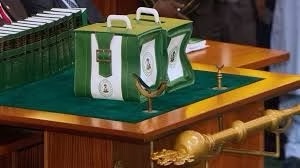The National Assembly has approved the 2025 budget, raising the total expenditure to ₦54.99 trillion. This marks an increase of ₦700 billion from the initial ₦54.2 trillion proposed by the executive. The approval comes after weeks of deliberations, with lawmakers adjusting allocations to various sectors to address pressing economic and social challenges. The budget aims to drive economic growth, improve infrastructure, and enhance social services.
One of the key highlights of the budget is the significant allocation to capital projects. A substantial portion of the expenditure is directed toward road construction, railway expansion, and power sector improvements. Lawmakers emphasized the need for better implementation to ensure that these projects are completed on schedule. The budget also includes provisions for increasing domestic revenue generation, reducing dependence on external borrowing, and promoting investment in critical sectors.
The 2025 budget also prioritizes education and healthcare, with increased funding allocated to schools, universities, and hospitals. The federal government has pledged to improve access to quality education and medical services, particularly in rural areas. Additionally, an emergency fund has been set aside for public health crises and disease control, following recent concerns over outbreaks of infectious diseases. The government hopes that these investments will lead to long-term improvements in human capital development.
In response to concerns about inflation and rising living costs, the budget includes measures aimed at stabilizing the economy. Increased funding has been allocated to support local food production, boost small and medium-sized enterprises (SMEs), and enhance job creation programs. Lawmakers argue that these measures will help reduce poverty and mitigate the impact of inflation on ordinary Nigerians. The budget also outlines plans for strengthening the social safety net, including cash transfer programs for vulnerable populations.
Despite the budget’s ambitious plans, concerns remain over its implementation and the sources of funding. Analysts warn that without effective revenue collection and fiscal discipline, the country may struggle to meet its financial obligations. The government has reiterated its commitment to increasing non-oil revenue through tax reforms and improved efficiency in public spending. As the fiscal year progresses, the success of the 2025 budget will largely depend on how well these policies are executed.
